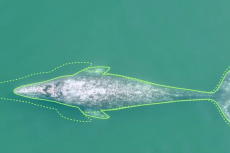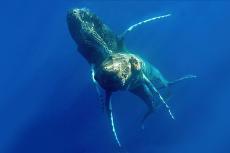96% of shark movies portray sharks as being a threat to humans
Many shark movies still depict sharks in a negative manner, showing them to be terrifying creatures with an insatiable appetite for human flesh.
In this day and age, with the prevalence of anti-shark fin soup campaigns and the ease with which accurate information about sharks can be disseminated, one might have reasonably expected sharks to be better portrayed in the movies.
That it may be seen as the majestic and graceful apex predator that it is, instead of a mindless man-eater bent on chomping down on screaming humans.
Well, one can hope.
In a world-first study by University of South Australia, researchers looked into how sharks were being portrayed in movies.
Based on the film storylines and posters of 109 shark movies listed in the online IMDb movie database, it was found that 96 percent of shark movies overtly portrayed shark-human interactions as being a threat to humans, while three percent of the movies did so in a covert manner.
And of all the films surveyed, only one did not contain any potentially threatening interactions.
"Since Jaws, we've seen a proliferation of monster shark movies—Open Water, The Meg, 47 Metres Down, Sharknado—all of which overtly present sharks as terrifying creatures with an insatiable appetite for human flesh. This is just not true," said conservation psychology researcher Dr Brianna Le Busque, from the University.
She explained that sharks were actually at a much great risk from humans and that global shark populations were in rapid decline and many species were under threat of extinction.
Sensationalised depictions of sharks in popular media can unfairly influence how people perceive sharks and negatively impact conservation efforts, she said, adding that "exacerbating a fear of sharks that's disproportionate to their actual threat damages conservation efforts, often influencing people to support potentially harmful mitigation strategies."

























